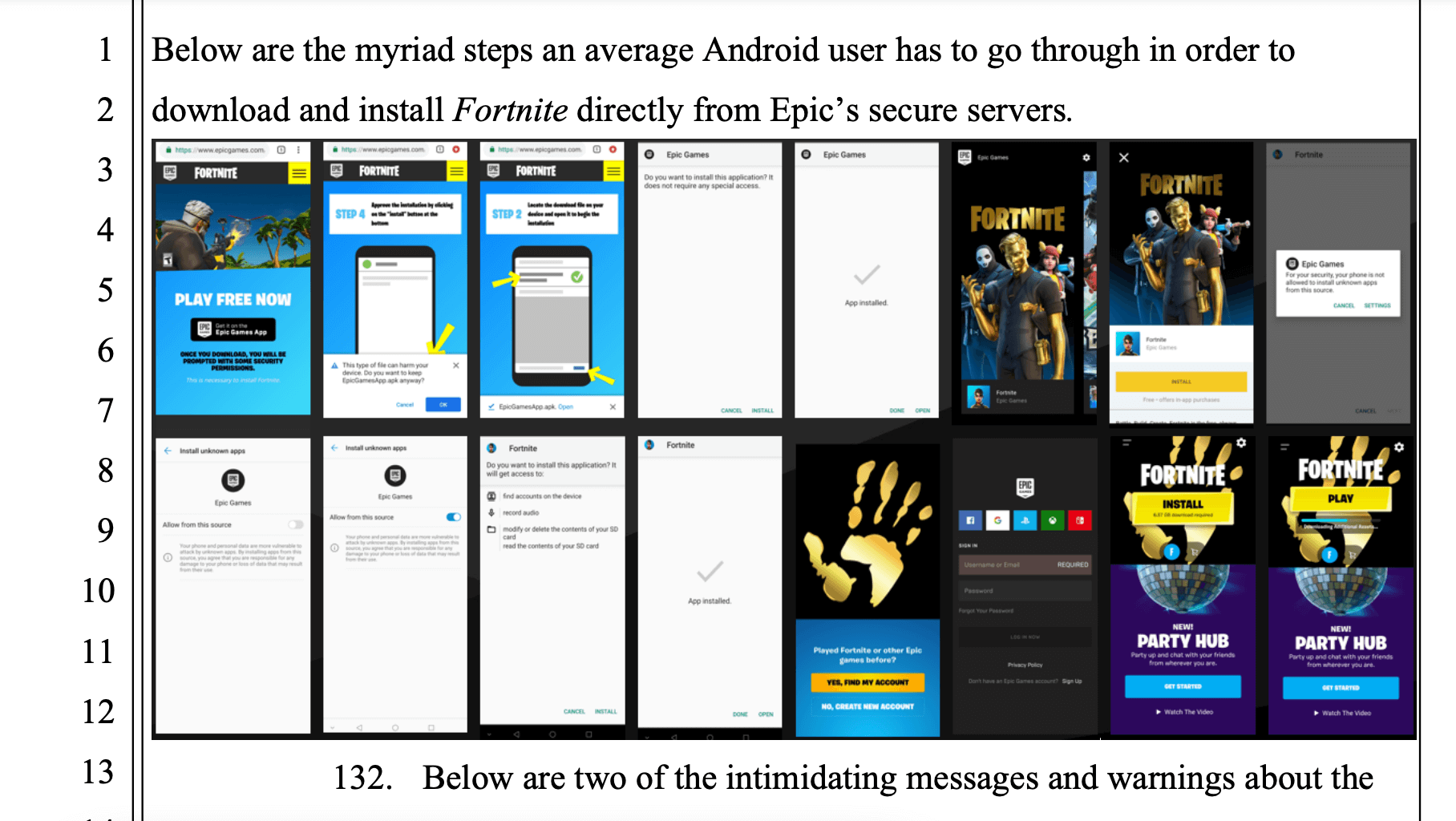WTF?! While its ongoing feud with Apple is rather well documented, Epic Games is also in the middle of an antitrust complaint against Google over the removal of Fortnite from the Play Store. According to newly released court documents, Google at some point considered simply buying out the company in order to quash legal action.
In the documents, Epic claims that Google was afraid of Epic's moves to dodge the 30% commission charged on payments through Google Play and offer Fortnite (and its very lucrative associated microtransactions) directly, quoting an internal document describing Epic's plans as a "contagion" that could spread to other developers and platforms. In Epic's own words:
Google has gone so far as to share its monopoly profits with business partners to secure their agreement to fence out competition, has developed a series of internal projects to address the "contagion" it perceived from efforts by Epic and others to offer consumers and developers competitive alternatives, and has even contemplated buying some or all of Epic to squelch this threat.
It's still unclear as to when these discussions took place, as the documents only have Epic quoting the internal messages second-hand, and Epic CEO Tim Sweeney made it clear that Google had never reached out to Epic with these discussions – in fact, Epic weren't aware of them.
Whether this would have been a negotiation to buy Epic or some sort of hostile takeover attempt is unclear.
--- Tim Sweeney (@TimSweeneyEpic) August 6, 2021
Here Google also talks about the "frankly abysmal" sideloading experience they created, all while touting Android publicly as an "open platform".
The company also alleges that Google had reached out to Epic's VP and co-founder to gauge the interest in a special deal to bring Fortnite to the Play Store, as well as discussing how directly downloading and sideloading the game was "frankly abysmal" and "an awful experience" – a fact that Epic's lawyers argue is intentional, claiming that Google have erected barriers to make sideloading apps seem scary and insecure.
According to them, Google's own staff have acknowledged internally that they provide a "[p]oor user experience" for would-be sideloaders, with "15+ steps to get app [via sideloading] vs 2 steps with Play or on iOS", a far cry from the experience of directly downloading and installing, say, Google Chrome on a Windows PC.
In any case, the offer for a deal was rejected, and Epic claims that Google responded to its decision to directly distribute Fortnite by pushing "exciting" statistics about the dangers of sideloaded apps to journalists covering that move.
The complaint accuses Google of anticompetitive behavior with its apps as far back as 2009, making agreements with OEMs and mobile network operators to "drive developer and user communities towards Android market" and away from competing OEM- or MNO-own storefronts, as well as more recently dropping the hammer on an attempted deal to include a dedicated Epic Games with OnePlus phones.

